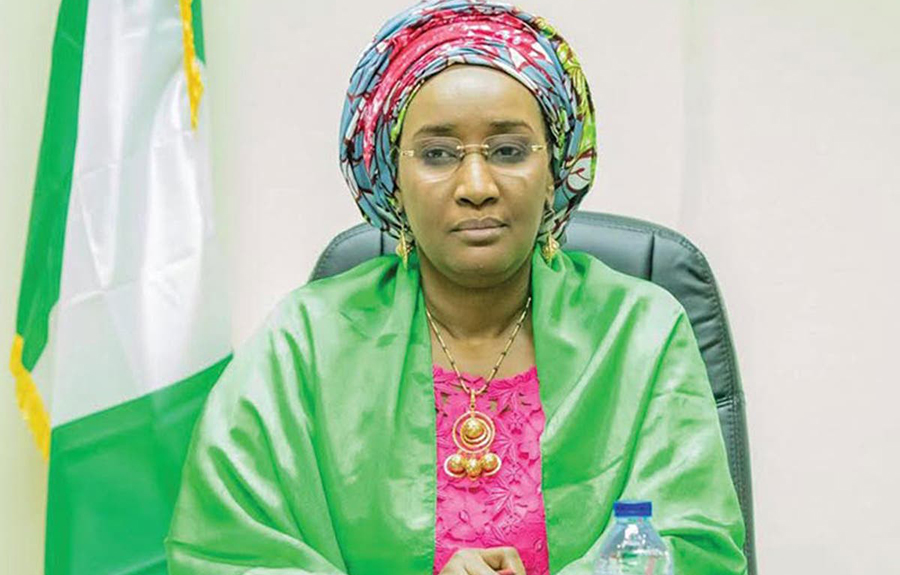News
Poverty: FG to inaugurate Grant for Vulnerable Groups for poor

The Federal Government says it is set to inaugurate Grants for Vulnerable Groups, aimed at lifting 100 million Nigerians out of poverty by 2030.
Hajiya Sadiya Umar Farouq, the Minister of Humanitarian Affairs, Disaster Management and Social Development made the remark at a news conference in Abuja on Wednesday.
Farouq said the programme was under the broad Conditional Cash Transfer (CCT) cluster of the National Social Investment Programme (NSIP).
She said that it was part of President Muhammadu Buhari’s inclusion on poverty agenda.
She explained that the CCT started in 2016, but targeted rural women in 2019, adding that it had immensely impacted positively on the lives of the poor and vulnerable population in Nigeria.
She said the ministry supported the rural women because they were enterprising and with little cash they would start a small business to fry bean cake and other consumables.
“And in most cases, they use their gains or profits to support their families, which is another reason why we support the women.
“However, due to the positive impact of the programme on rural women, we decided to expand it because the men were fully left out, but in 2021 appropriation, we named it `Grant for Vulnerable Groups’.
“This is to further sustain the social inclusion agenda of Buhari’s administration; it is consistent with the national target of lifting 100 million Nigerians out of poverty by the year 2030.’’
The minister said that it was also designed to provide a one-off financial grant to the poorest and most vulnerable people, women, men, disabled and the aged persons in rural and urban areas of the country.
“The cash grant of N20, 000 each will be disbursed to these target beneficiaries across the 36 states of the federation and the Federal Capital Territory,’’ Farouq said.
According to her, the main objective for the Grant for Vulnerable Group Programme is to increase income and productive access of the target beneficiaries.
She said the specific objectives were to increase access to financial capital and income generating activities and also promote financial inclusion among “unbanked” and “underserved” populations.
She said that it was also to contribute towards improving the living standards of the beneficiaries.
“In line with Buhari’s social inclusion, 70 per cent of the total number of beneficiaries are women, while the remaining 30 per cent is for the men.
“In addition, about 15 per cent of the total number of the beneficiaries is specifically allocated to the segment of population with special needs, including Person with Disabilities (PWDs), Senior Citizens, Internally Displaced Persons (IDPs), widows and orphans in the country.
“The programme is targeted at rural and urban women and men within the productive age of 18 and above.
“However, the ministry is working with critical MDAs, state governments as well as NGOs and NGOs to identify, select and mobilise beneficiaries.
Farouq said that the ministry engaged the service of the service providers that were registered by the CBN for disbursement of the funds to enable quick financial transfer, gender transparency and accountability.
According to her, the N20, 000 cash grant is paid to each target beneficiaries using physical payment and also full bank account or wallets where possible,’’ she said.
She said that efforts were being made to fully digitalise the payments nationwide as quickly as possible.
“We shall inaugurate the disbursement May 28, 2023 and thereafter, the programme will be roll out in the 36 states of the federation including FCT according to the timetable already designed.’’
Dr Umar Bindir, the National Coordinator of NSIP said the essence of the programme was to deal with poverty.
He said that other poverty alleviation programmes like the N-Power were also targeted at lifting 100 million Nigerians out of poverty.
Malam Abdukadir Nasir, the Chairman of NSIP Focal Persons in Nigeria, appreciated Buhari, Farouq and Bindir for their commitment towards the programme.
According to him, from 1960 to date, no government has touched the lives of the poor and vulnerable in the 774 local government areas like the government of Buhari.
It was reported that the event witnessed officials from the National Commission for Persons with Disabilities and National Senior Citizens Centre.
Others were National Commission for Refugees, Migrant and Internationally Displaced Persons and many others.




 Davido's Net Worth & Lifestyle
Davido's Net Worth & Lifestyle 
